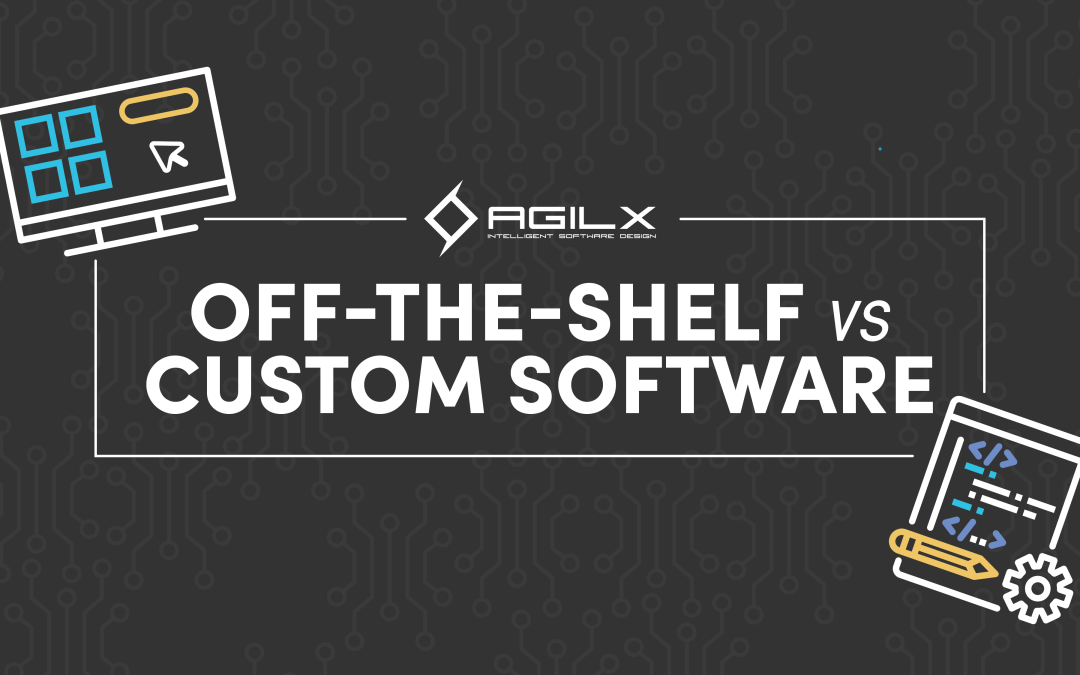There’s no doubt that software can add value to your business, but it’s important to weigh the pros and cons between off-the-shelf versus custom software to determine which one is the right solution for you. There are several things to consider when deciding between the two, and the wrong selection can have serious implications for your business.
Questions to consider
- Do you need many programs to perform different stages of the same process?
- Is it necessary to have tools that can be incorporated with other structures?
- What are the anticipated benefits?
- Is the current application causing problems for employees, customers, and vendors?
With those questions in mind, you can now dissect the differences between off-the-shelf versus custom software and the advantages or disadvantages that each one will potentially have on your business.
Off-The-Shelf vs. Custom Software
Off-the-shelf software is designed for a broad audience and is typically recommended for startups and those just beginning to take a digital approach. For more established businesses, off-the-shelf software may sound appealing due to the low cost and the fact that it is readily available, but it may not be the best option to propel your business forward.
Since off-the-shelf software is designed for many different types of users, the functionality is not unique to your specific business needs. In order to appeal to a wide range of users, the software is built with overloaded functionality. As a result, the majority of the features existing within the software are likely ones you will never need to use for your business. It’s important to consider that you will still have to pay for these features despite not utilizing them, which may feel like a waste of money. Another downfall of off-the-shelf software is that it’s slow to change with industry needs, so you may run into roadblocks when your business needs change or evolve. Since you aren’t in control of the changes and upgrades, you’ll be prevented from improving the software to adapt to your growing business. Off-the-shelf software can feel very limiting in this regard.
On the other hand, custom software can be easily adapted and is recommended when ready-made software fails to meet your business needs. Since it is specifically designed for your business, you have the final say in what functionality needs to exist within the application. With complete ownership of the software and unlimited options, the possibilities are endless.
The cost of developing custom software is higher and it’s important to take into account the time it will take to develop the software before it’s ready to implement. However, the payoff of making this investment in your business is well worth the time and money. Custom software is designed to be scalable, meaning you have the ability to start small with the basic functionality needed to conduct your business. As your business continues to grow and you identify additional ways that software can help you achieve your business goals, you have the ability to change, add, or remove functionality. There is immense value in the ability to adapt since the world of technology is constantly changing and it’s becoming more important than ever to make continual improvements to your business, in order to remain at the forefront in your field. Adaptability positions your business with a competitive advantage over those using off-the-shelf software because they must rely on the company who created the software to make changes. Those changes come at a much slower rate than custom software, and with the freedom to scale your software at any time, you’ll likely be leaps and bounds ahead of the competition.
In the end, it’s up to you to decide which option makes the most sense for your business. Custom software is adapted to meet business needs, whereas off-the-shelf software requires your business to adapt to its capabilities. Be sure to carefully consider how each option will impact your business before choosing the best route forward.
